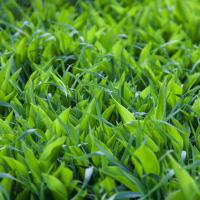Is Money Plant Toxic to Cats?
Money plants, also known as Devil's Ivy or Golden Pothos, are popular houseplants due to their aesthetic appeal and ease of care. However, if you're a cat owner, you may be concerned about whether or not money plants are safe for your furry friend. In this article, we'll explore the question of whether money plants are toxic to cats.
Understanding Toxicity in Plants
To determine whether or not a plant is toxic to cats, it's important to understand what toxicity means in this context. Toxicity refers to the ability of a plant to cause harm or illness when ingested by a cat. Some plants can cause mild symptoms such as upset stomach or skin irritation, while others can be extremely toxic and potentially deadly.
Toxicity in Money Plants
Money plants are mildly toxic to cats. The plant contains insoluble calcium oxalate crystals, which can cause irritation and swelling of the mouth, tongue, and throat if ingested. This can lead to drooling, difficulty swallowing, and vomiting. In severe cases, the swelling can be so severe that it restricts the cat's breathing.
It's worth noting that money plants are not the only houseplants that contain calcium oxalate crystals. Many other common houseplants, such as philodendrons and ZZ plants, also contain these crystals and are therefore toxic to cats.
Preventing Toxicity in Cats
To prevent your cat from being exposed to the potentially harmful effects of money plants, it's important to take a few precautions. First, keep your money plant in a location that's out of reach of your cat. This could mean placing it on a high shelf or hanging it from the ceiling.
If you do notice that your cat has ingested some of your money plant, watch for symptoms such as drooling, difficulty swallowing, and vomiting. If your cat exhibits any of these symptoms, it's important to seek veterinary care right away.
Alternative Houseplants for Cat Owners
If you're a cat owner who loves houseplants but wants to avoid potential toxicity, there are plenty of non-toxic plants to choose from. Some of these plants include spider plants, African violets, and Boston ferns. However, it's still important to keep these plants out of your cat's reach to prevent damage to the plant and potential harm to your pet.
Conclusion
While money plants are not highly toxic to cats, they can still cause irritation and discomfort if ingested. To keep your cat safe, it's important to keep your money plant out of reach and monitor your pet for any signs of illness if exposure does occur. Alternatively, consider choosing non-toxic houseplants to enjoy in your home with your furry friend.

 how many times do yo...
how many times do yo... how many planted tre...
how many planted tre... how many pine trees ...
how many pine trees ... how many pecan trees...
how many pecan trees... how many plants comp...
how many plants comp... how many plants can ...
how many plants can ... how many plants and ...
how many plants and ... how many pepper plan...
how many pepper plan...































